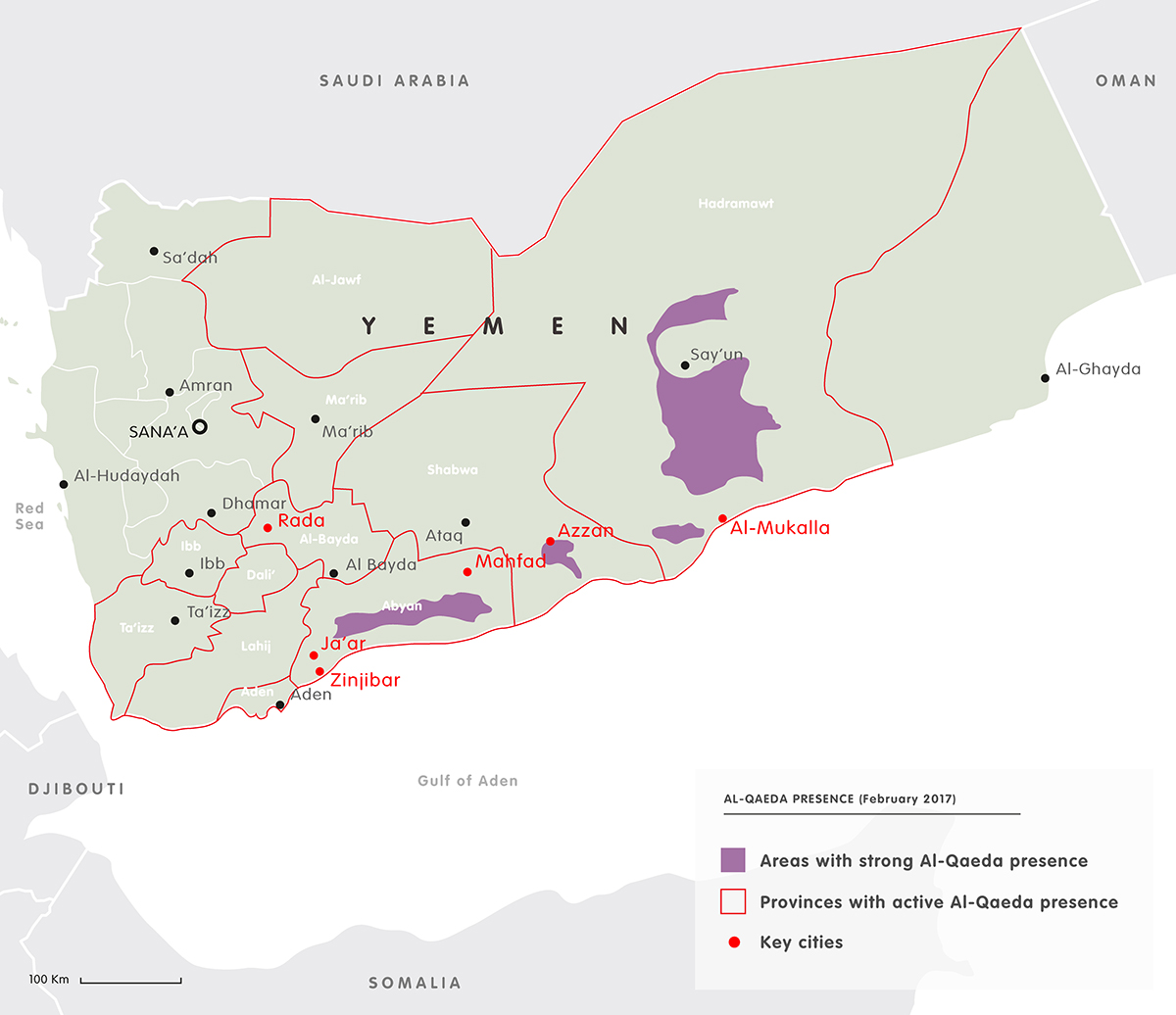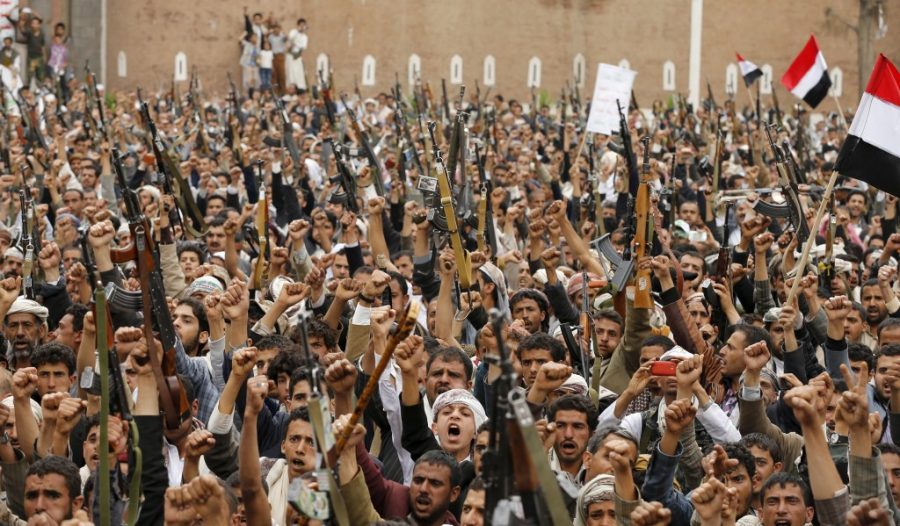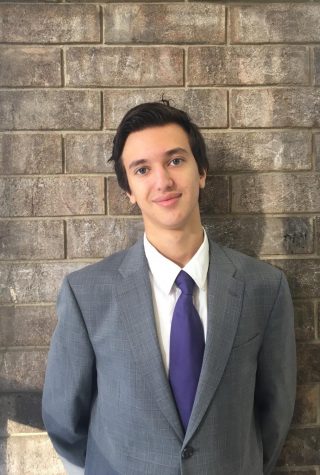An Unknown Civil War
Shi’ite Muslim rebels hold up their weapons during a rally against air strikes in Sanaa
February 6, 2018
A father diligently watches his children run around the house with a smile on his face, soon joining them in their game, taking part in their limited time of childhood. His first step towards them would be his last, as well as his children’s, as a missile comes spiraling down onto their home, obliterating life in an instant. This is one scene of the unknown civil war in Yemen.
The cause of this civil war can be boiled down to the failure to transfer power from one leader to the next. A revolution, which took place during Arab Spring in January 2011, prompted the authoritarian ruler at the time, Ali Abdullah Saleh, to step down and let his vice president, Abdrabbuh Mansur Hadi, to take over. However, following the transition of power, stability plummeted throughout the country. Unemployment rose, food became scarce, corruption swept the government, and terrorist groups took a foothold in the country. Yemen’s Shia minority group in the north, called the Houthis, rebelled against the new government along with pro-Saleh forces and took control of the Yemeni capital, Sanaa, in 2014. The civil war soon evolved into a proxy war, with the Houthis being supported by the major Shia power, Iran, and Hadi’s Sunni government being supported mainly by Saudi Arabia and a coalition of Sunni nations in the region. Ever since, Yemen presents one of the biggest humanitarian crises in the 21st century, yet remains unknown to the majority of the western world. A poll taken by YouGov in Great Britain in March, 2017 shows that only 49% of people knew of the civil war in Yemen.

We need to become more observant and knowledgeable about this civil war, not only because of the politics behind of it, but because of the human suffering it causes. The UN Human Rights Council has noted that the conflict contains “unrelenting violations of international humanitarian law.” As Saudi airstrikes land on rebel lands, civilians are caught in the crossfire. Over 4,000 civilians have been killed so far, mostly due to these airstrikes, which have landed in residential areas, schools, and hospitals. Western countries, like America, the UK, France, and many others, are funding the Saudi coalition by giving money and supplies, such as bombs and rockets, while the US allows the Saudi Air Force to land on US carrier ships to refuel and continue the bombings.
In addition to the deaths caused by airstrikes, a cholera outbreak has claimed over 2,000 people in Yemen with an additional 900,000 infected. This can be connected to the bombings from both sides of the conflict, leading to the destruction of infrastructure, such as medical facilities. The BBC reports that 14.8 million people in Yemen are without proper healthcare, and it is only going to rise. On top of this, it is estimated that around 19 million people are in need of humanitarian assistance, along with three million people being displaced from their homes. Even worse, a blockade has induced a famine in rebel-controlled Northern Yemen, where millions of people are starving and experiencing malnourishment even when food is present in the country, due to soaring prices.
Even with this colossal humanitarian crisis occurring, media coverage on TV channels and radio broadcasts has been minimal, and it is understandable why: ratings. Talking about a civil war that we assume will have no effect on us will not bring in more viewers. What will cause people to swarm around your coverage is talking about terrorism or domestic issues. These topics are more important in the short run, but ignoring the civil war in Yemen is a mistake. Al Qaeda is growing in Yemen as it becomes consumed more and more by the conflict. While Al Qaeda loses its foothold in Iraq and Syria, it grows tremendously in Yemen, feeding off of the chaos. Now, the group can once again threaten US soil, as ISIS did with its internet campaign, radicalizing people through propaganda and inciting terrorist attacks overseas.
Above all, we need to pay attention to this civil war because it is a terrible humanitarian crisis. Millions upon millions of humans are suffering each day without our knowledge, and while there’s not much we can do except for donations, just knowing about the conflict is important enough. When people outside of a conflict become more aware of it, more action is taken. As we stand right now, in disregarding the conflict, the international community will not take the actions needed to end it. However, as seen time and time again in history—with the Holocaust, Rwandan genocide, and ethnic cleansing in Yugoslavia—as more people learn and take interest in a humanitarian crisis, the international community steps in and finds solutions to end the bloody ordeal.

















































































































































